General
Guidelines to First Year students 2016-2017 Academic Year
Published
10 years agoon
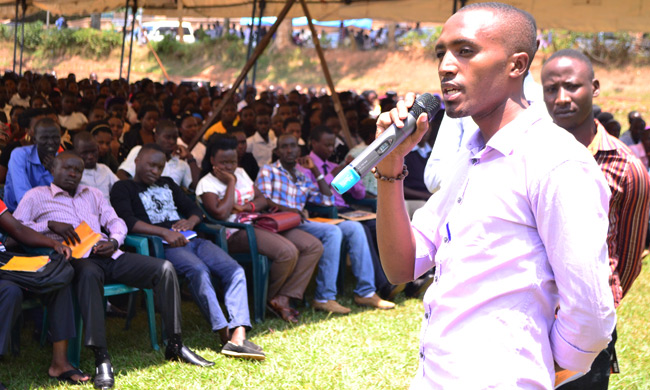
First Year students (Freshers) are by tradition given an “acclimatization” period of normally one week which is referred to as the “Orientation Week”. The Freshers report on Campus one week earlier than the Continuing students and during this week they are introduced to the key facilities in the University as well as other important aspects of life at the University.
Schedule of Semesters for Academic Year 2016/2017
Orientation Week:
Getting used to a new place can be pretty daunting, but that is what orientation week is all about; getting to know your surroundings, meeting students and staff members. This makes you feel comfortable enough to hit the ground running when the semester starts. It is a great chance for you to familiarize yourself with the University.
Saturday 6th August, 2016 to Friday 12th August, 2016 (7 Days) – Orientation Week
Semester One
Saturday 13th August, 2016 to Saturday 10th December, 2016 (17 Weeks)
Ceremony of Admission
Friday 19th September, 2016. Time: 2.30 p.m. in the Freedom Square (All Freshers are required to wear the undergraduate gown).
Semester One Vacation
Saturday 10th December, 2016 to Friday 20th January, 2017 (7 Weeks)
Semester Two
Saturday 21stJanuary, 2017 to Saturday 20th May, 2017 (17 Weeks)
Semester Two Vacation
Saturday 20th May, 2017 to Saturday 29th July, 2017 (10 Weeks)
During this week, arrangements are made to enable the Freshers meet and be addressed by Key Officers, Wardens and Student Leaders who welcome the students.
Arrangements are also made to enable the Freshers acquaint themselves with such key facilities at the University like the Library, University Hospital, Games and Recreation Facilities etc. Freshers are expected to take advantage of the week to survey and acquaint themselves with the general Campus lay out. Another major activity during the Orientation Week is Registration.
All Freshers must ensure that they are registered first centrally and then with each of their respective Colleges/Schools.
Orientation Events
Saturday 6th August, 2016
Resident Freshers report to their respective Halls of residence or private Hostels by 5.00 p.m. It is the responsibility of each student to make his/her own travel arrangements to the University or private hostel.
Monday 8th August, 2016
All Freshers shall report to the Freedom Square for a meeting with the University officials at 9.00 a.m.
Programme for the Day
9.00 a.m – 12.30 p.m address from the following University officials:
▪ Guild President
▪ Deputy Registrars
▪ The Academic Registrar
▪ Dean of Students
▪ Director University Health Services
▪ Director Counseling & Guidance Centre
▪ The Principal Games Tutor
▪ The University Bursar
▪ The University Chief Security Officer
The Freedom square is the open ground in front of the main Administration Building where official functions of the University are normally performed.
Freshers are expected to be seated by 9.00 a.m.
Registration
For a candidate to qualify to be a bonafide student of the University, he/she must be registered. Registration is a mandatory requirement of the University which must be done within the first two (2) weeks from the beginning of the semester by every student.
Registration will commence on Monday 8th August, 2016 starting at 9.00 a.m. each day.
Ensure that you complete all the required registration formalities within the prescribed time in order to avoid disappointments later.
Registration Requirements
For registration purposes, the originals of the following must be produced by each Fresher:
▪ Admission Letter, O’Level Certificate/Pass Slip (UCE or Equivalent)
▪ A’Level Certificate/Pass Slip (UACE or equivalent)
▪ Birth Certificate
▪ An Identity Card from the previous A’level School. The Diploma Holders must produce Identity Cards from their previous College.
▪ Three photocopies of each of the “O” and “A”Level Results Slips/Certificates, and Transcripts/Certificates from the awarding Institutions in case of Diploma Holders.
▪ Seven most recent passport-size photographs. (Current Likeness)
▪ Copies of the Pay-in/Deposit Slip acknowledging payment of the following fees for each government sponsored student to Makerere University Fees Collection Accounts:
a) University Rules Booklet – Shs.2,000/=
b) Undergraduate Gown – Shs.16,000/=
c) Identity Card – Shs.45,000/=
d) Guild Subscription fee – Shs.10,000/=
e) Endowment fee – Shs.10,000/=
f) Senior Common Room fee – Shs.5,000/=
g) Sports Contribution fee – Shs.15,000/=
h) National Council for Higher Education fees – Shs.20,000/=(Payable to
the National Council for Higher Education Account)
Change of Programme/Subjects
(a) Change of Programme
Since selection for specific programmes was made according to each candidate’s performance and order of programme choices, taking into account the available subject combinations and time-table limitations, there is normally little need to change the programme or subjects. However, some places become vacant when some of the students admitted do not take up the offers. Such places are filled through the change of programme/subjects.
Students who wish to change programmes first of all register according to the registration time-table for the programmes and subjects (where applicable) to which originally have been admitted. Each student who may wish to change his/her programme/subject is required to pay an application fee of Shs.6,000/= plus the bank charges to Stanbic Bank, dfcu Bank, Post Bank, Centenary Bank and crane Bank.
(b) Change of Subjects
Students in the College of Humanities and Social Sciences, Natural Sciences or the College of Education and External Studies may wish to change their subjects. Change of Subject will be done online on payment of Shs.6,000/=, to either Stanbic Bank, dfcu Bank, Post Bank, Centenary Bank or crane Bank.
Students should be aware that changing one subject may result in a change of College. Before students apply to change their programmes, Colleges and Subjects, they are encouraged to seek advice on the cut-off point(s) for programmes, requirements for specific subjects and possible subject combinations.
Students are notified and warned about this Senate ruling that any one transferring to another subject or College without proper authority will be liable to discontinuation from the University.
A student who has been permitted to change his/her programme or subject(s) is issued with a letter stating so, and on receipt of such a letter that student should complete the ACCEPTANCE Part and return a copy of each to the Undergraduate Admissions and Records Office, the former and the new College/School.
The change of programme/subjects will be done online from Monday 8th August, 2016 to Friday 12th August, 2016 at Level 3, Senate Building.
N.B: It is advisable that only those students who meet the cut-off points for the desired programmes may apply.
COMMUNICATION FROM UNIVERSITY SECRETARY
Effect 2016/2017 Academic year, all students admitted by Makerere University at the Makerere University Business School-MUBS campus are required to pay Ugx. 190,000 directly to Makerere University Fees Collection Account Number: 9030005866749 at Stanbic Makerere Branch.
Please take note that the Identity Card fee of Ugx. 45,000 is paid once and hence the above figure will adjust to Ugx. 145,000 after the 1st year of study. The details of the total figures is as follows;
Ugandans (Ugx) Other Nationals (Ugx)
Registration 50,000 101,000
Examination 50,000 151,500
Technology 25,000 50,000
Identity Card 45,000 45,000
Affiliation 20,000 20,000
Total Ugx.190,000 Ugx. 367,500
You will be required to present the receipts for the above fees at the end of your program in order to access your academic documents.
COMMUNICATION FROM DEAN OF STUDENTS
Accomodation
Accommodation for year one students 2016/2017 in the University Halls of Residence.
1. Government Sponsored
a) A’Level direct merit entrants offered the following study programmes maybe accommodated in the Halls of Residence to which they are attached as indicated on the admission letter. Eligible students not able to take up the accommodation offer for very strong reasons should inform the Dean of Studentsin writing before Monday 1st August, 2016 and submit your application to Room 214, Senate Building:
i) Bachelor of Science in Agricultural Engineering (AGE)
ii) Bachelor of Science in Agriculture (AGR)
(iii) Bachelor of Architecture (ARC)
iv) Bachelor of Dental Surgery (BDS)
v) Bachelor of Science in Medical Radiography (BMR)
vi) Bachelor of Science in Civil Engineering (CIV)
vii) Bachelor of Science in Conservation Forestry & Products Technology (CFP)
viii) Bachelor of Science in Electrical Engineering (ELE)
ix) Bachelor of Industrial and Fine Art (FIN)
x) Bachelor of Science in Food Sciences and Technology (FST)
xi) Bachelor of Laws (LAW)
xii) Bachelor of Science in Land Surveying and Geometric (LSG)
xiii) Bachelor of Medicine and Bachelor of Surgery (MAM)
xiv) Bachelor of Science in Mechanical Engineering (MEC)
xv) Bachelor of Science in Nursing (NUR)
xvi) Bachelor Social and Entrepreneurial Forestry (SEF)
xvii) Bachelor Science in Quantity Surveying (SQS)
xviii) Bachelor Statistics (STA)
xix) Bachelor Pharmacy (PHA)
xx) Bachelor of Veterinary Medicine (VET)
b) Non Residents
The rest of the government sponsored students, including all those admitted through Diploma and Mature age entry schemes (irrespective of study programmes offered) shall be Non Residents and eligible for Food and Living out allowance. Register with the Warden’s Office at your Hall of attachment upon arrival.
c) Change to Private Programmes
Students admitted on government sponsorship but who choose to take up alternative study programmes under private sponsorship shall lose all government related benefits and should not claim for any.
d) Students Admitted Under Disability Scheme
Students in the above Scheme may be resident in the Halls of attachments indicated on their admission letters, irrespective of the study programmes offered.
e) Students Admitted Under Sports & District Quota Schemes
Students admitted under these categories will be treated as in 1(a) and (b) above, subject to availability of bed space by the time their admission is finalized.
2. Change of Halls of Attachment
This is PROHIBITED except where Gender was mixed up i.e female attached to Male Halls or vice versa.
3. Privately Sponsored Students
a) A few bed spaces have been reserved for privately sponsored students. Once admitted privately sponsored students who wish to be accommodated should apply to Dean of Students in Room 214, Senate Building for Bed space.
b) Privately sponsored students granted permission to reside in Halls of Residence may pay for meals at the nearest Food Court. There are six Food Courts located in Africa, Nkrumah/Nsibirwa, University Hall, Mary Stuart, Galloway House and Kabanyolo Hostel.
Alfred Masikye-Namoah
ACADEMIC REGISTRAR
You may like
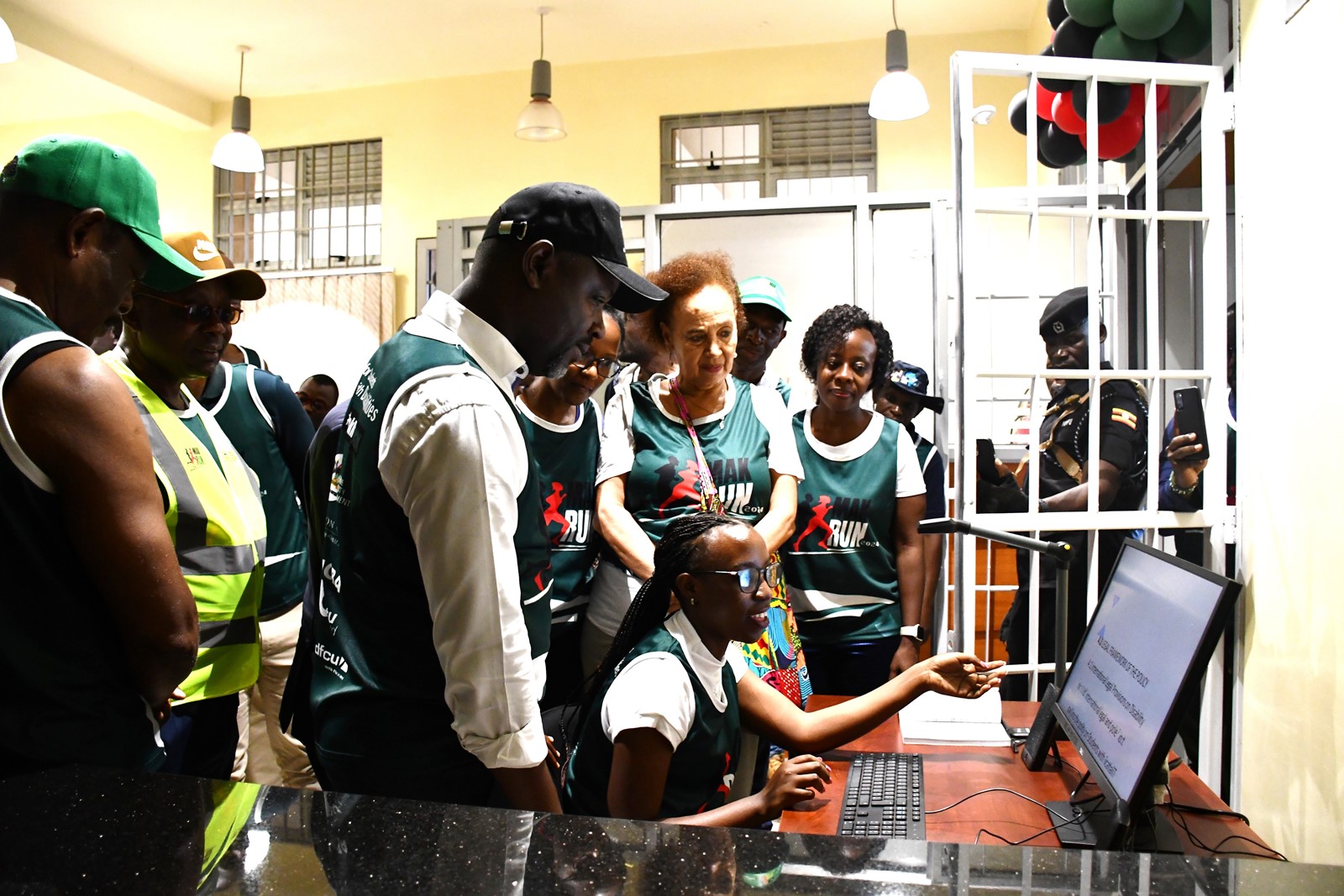
Students with disabilities at Makerere University have been requested to stop seeking for special attention and instead look for solutions and opportunities for personal growth.
This was during a mental wellness, inclusion and safeguarding session organized by the Dean of Students office and the Mastercard Foundation Scholars Program at Makerere University.
Addressing students on mental health and disability inclusion, Mr. Marvin Ggaliwango, a lecturer at the College of Computing and Information Sciences (CoCIS), noted that if the students stop complaining, they will become empowered to take charge of their own development, build resilience and engage confidently in both academic and social environments.
“Turn your lived experiences into tools for innovation. Stop complaining and start creating solutions for yourselves. You are the one living this life, and that gives you the authority to be an expert. When you develop a solution, it doesn’t just benefit you, it helps others too, by removing barriers,” Mr. Marvin Ggaliwango, said.
He encouraged students to see themselves not as victims of circumstance, but as active participants and co-creators of the inclusive environment they wish to experience.
“Learn how to communicate effectively and humbly. If you have a problem, express yourself clearly. Do not isolate yourself or feel resentful. You are not defined by disability, you may face disadvantages, but you still have ability,” he encouraged.
Throughout the session, students listened attentively as he emphasized the importance of self-awareness and personal responsibility, urging them to understand their strengths, acknowledge their limitations and take deliberate steps toward personal growth while contributing positively to the University community.
“We must enhance and ensure that our mental health is number one. Always choose yourself first. Choose what makes you happy and protect your peace. If you are at peace with yourself, your academics will improve. There is a strong link between mental wellness and academic success,” Mr. Ggaliwango, noted.
In his speech, Mr. Musa Mwambu, the Disability Inclusion Advisor at Light for the World Uganda, called upon the students with disabilities to enhance and ensure that their mental health is prioritized.
“As students living with disabilities, sometimes you over expect, because you have a disability you should be given, listened to and when people do not listen to you, you attribute it to your disability, get it from me, even those without disabilities are not listened too. Things are not happening to you because of your disability it is because of the world we live in. Everything that happens to you can happen to others,” Mr Mwambu, noted.
“Have fun with your life. Make yourself happy and be smart. Present yourself in public confidently wherever you go. The way you carry yourself can improve your mental health and how others perceive you,” Mr. Mwambu said.
He reminded the students that gaining admission to Makerere is itself a milestone.
“There are many people without disabilities who have never stepped at Makerere University. Find something that empowers you and hold on to it. You may have a physical impairment, but if you are brilliant in class, you can lead discussions and inspire others,” he added.

During the session, Dr. Rodney Rugyema, the Acting Principal Warden, welcomed the students back from the long holiday. He assured them that the University is committed to their safety and well-being while on campus.
Dr. Rugyema emphasized that the University has systems in place to protect students, both physically and psychologically and encouraged them to report any concerns promptly.
“When you are at the University, you are not on your own, we are always here for you. For us to engage you on mental wellness and inclusion, we want you to be in the right state of mind, whole and complete,” Dr Rugyema, said.
He added: “We are here to empower you and we are calling upon you not be a risk for yourself and always be able to detect risks that are likely to affect your mental health and works towards avoiding them and reporting them to ensure that the University manages them before they escalate into real harm whose impact is more serious than you can think,”
During the session, Ms. Diane Nabikolo Osiru highlighted the University’s broader commitment to safeguarding.
Safeguarding at Makerere University refers to measures put in place to promote safety and wellness of all students, staffs and other stakeholders.
“At Makerere University, safety is not a luxury for few. but it is a right for every student. As the semesters begins, we are urging you to learn how to identify signs of harm or abuses and report them to the appropriate safeguarding contact points,” Ms Nabikolo, said.
For support in case of any harm or abuse, International and Refugee Students, can access support through the Advancement and International Office, while Students with Disabilities, can utilize the Disability Support Center. Those with personal and emotional challenges, can visit the Counselling and Guidance Centre.
In his speech, Dr Joab Agaba, a Lecturer in the College of Computing and Information Sciences, guided students how to report risks and incidences to the MakSafeSpace, the e-reporting platform complimenting the other University traditional reporting channels.
Mr. Henry Nsubuga, the Manager of the Counselling and Guidance Center, shared practical strategies for coping with stress effectively including time management, setting realistic goals, seeking support from peers or counsellors.
Students speak out
Shanitah Nahamya, 2nd year student of the Bachelor of Adult and Community Education
“I have learned how to respectfully and appropriately engage with students with disabilities. In the past, I often felt pity when I encountered them, but now I understand that what they need is not pity, it is respect, support, and equal opportunity.”
Guo Dorothy Geri, 1st year student of the Bachelor of Commerce
“I have learnt how to use inclusive language. Before offering help to a student with a disability, I will first ask them, because not all the time do they need our help. You might think someone wants to be helped to cross the road, yet they are waiting for someone.”
Valentines Doris Aduka, 1st Year student of the Bachelor of Biomedical Science
“I have been calling students with disabilities special names, thinking it was kind. But I have learned that they do not want to be treated differently or labeled in a special way. What they value most is being treated like everyone else, with respect, dignity, and fairness.”
General
Strengthening Global Partnerships to Advance Research, Innovation, and Graduate Training: Makerere University Hosts Delegation from the University of Warwick
Published
3 days agoon
February 19, 2026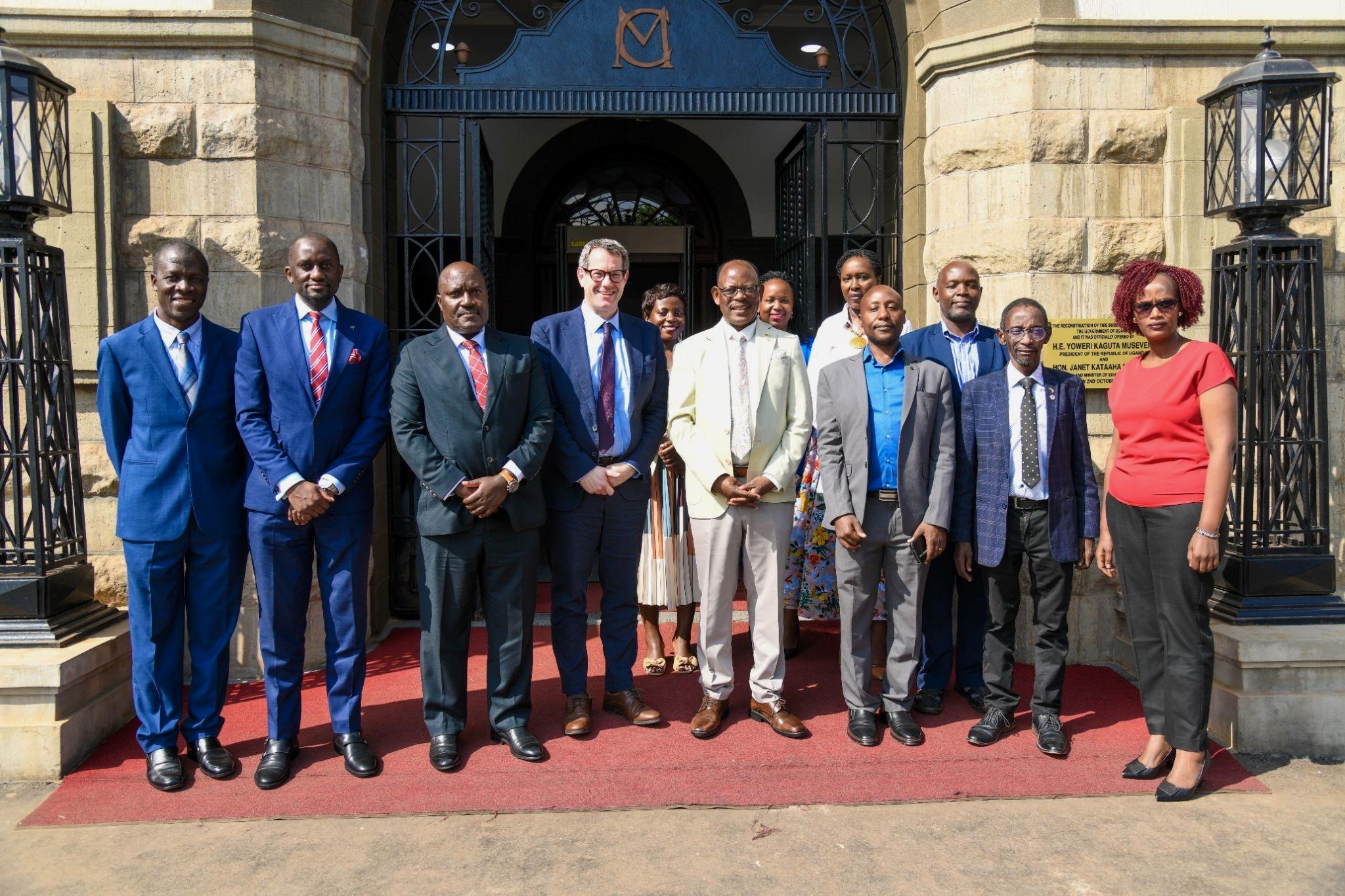
Makerere University continues to deepen its global engagement agenda through strategic partnerships that enhance research, innovation, and graduate training. On Friday, 13th February, 2025, during a recent engagement with a delegation from the University of Warwick (UK), university leaders, researchers, and administrators explored potential collaborations to address pressing development challenges and strengthen institutional capacity.
Expanding Collaboration in Research and Innovation
Welcoming the delegation, Prof. Fred Masagazi-Masaazi, Chairperson of the Makerere University Research and Innovations Fund (Mak-RIF) Grants Management Committee, emphasized the growing dialogue between Makerere University and the University of Warwick. He noted that ongoing discussions are focused on resource mobilization to support research and innovation, as well as building sustainable academic exchanges for both staff and students.
Dr. Roy Mayega, Mak-RIF Coordinator, together with Mrs. Phoebe Lutaaya Kamya, Deputy Coordinator, and members of the Mak-RIF team, highlighted the Fund’s role in catalyzing collaborative research and strengthening partnerships that translate research into societal impact.
Mr. Simon Kizito, Deputy University Secretary, outlined key areas identified for collaboration, including joint research and innovation initiatives, benchmarking visits across disciplines such as law, science, and ICT, and student exchanges designed to strengthen applied research skills. He also pointed to opportunities for training Makerere staff in specialized areas such as tropical diseases and innovation ecosystems, drawing lessons from Warwick’s strong linkages with industry partners located within its campus.
Makerere’s Strategic Priorities and Global Role
In his remarks, the Vice Chancellor underscored the longstanding relationship between Makerere University and the University of Warwick, dating back to the early 1980s, initially through staff training and more recently through collaborative research.
He highlighted Makerere’s historic contribution to leadership development across Africa and beyond, and the University’s continued growth following faculty rebuilding efforts in the 1980s, which have strengthened its research capacity. Today, Makerere has over 1,300 academic staff, more than 1,000 of whom hold PhDs, positioning the institution to play a leading role in knowledge production.
The Vice Chancellor also outlined major thematic areas where partnerships are critical:
- Climate change and food security: Researchers at the College of Agricultural and Environmental Sciences (CAES) are developing drought-resistant and high-yield seed varieties to address changing weather patterns and food insecurity.
- Public health and infectious diseases: Uganda faces frequent outbreaks of diseases such as Ebola and Marburg, and Makerere has built strong capacity in outbreak response and tropical medicine. The University’s medical school and the Infectious Diseases Institute (IDI) continue to play a pivotal role in research and treatment.
- Peace and conflict studies: Through initiatives such as the Rotary Peace Centre, Makerere contributes to training global leaders in conflict resolution.
- Climate-sensitive macroeconomic modelling: Makerere recently hosted a conference in collaboration with the Ministry of Finance, Planning and Economic Development to advocate for climate-responsive macroeconomic modelling and to plan for the establishment of a Centre of Excellence in this field.
- Innovation and technology: The University’s innovation ecosystem has produced notable outputs, including Africa’s first electric vehicle and ongoing work to expand incubation facilities to enable students to graduate with viable enterprises.
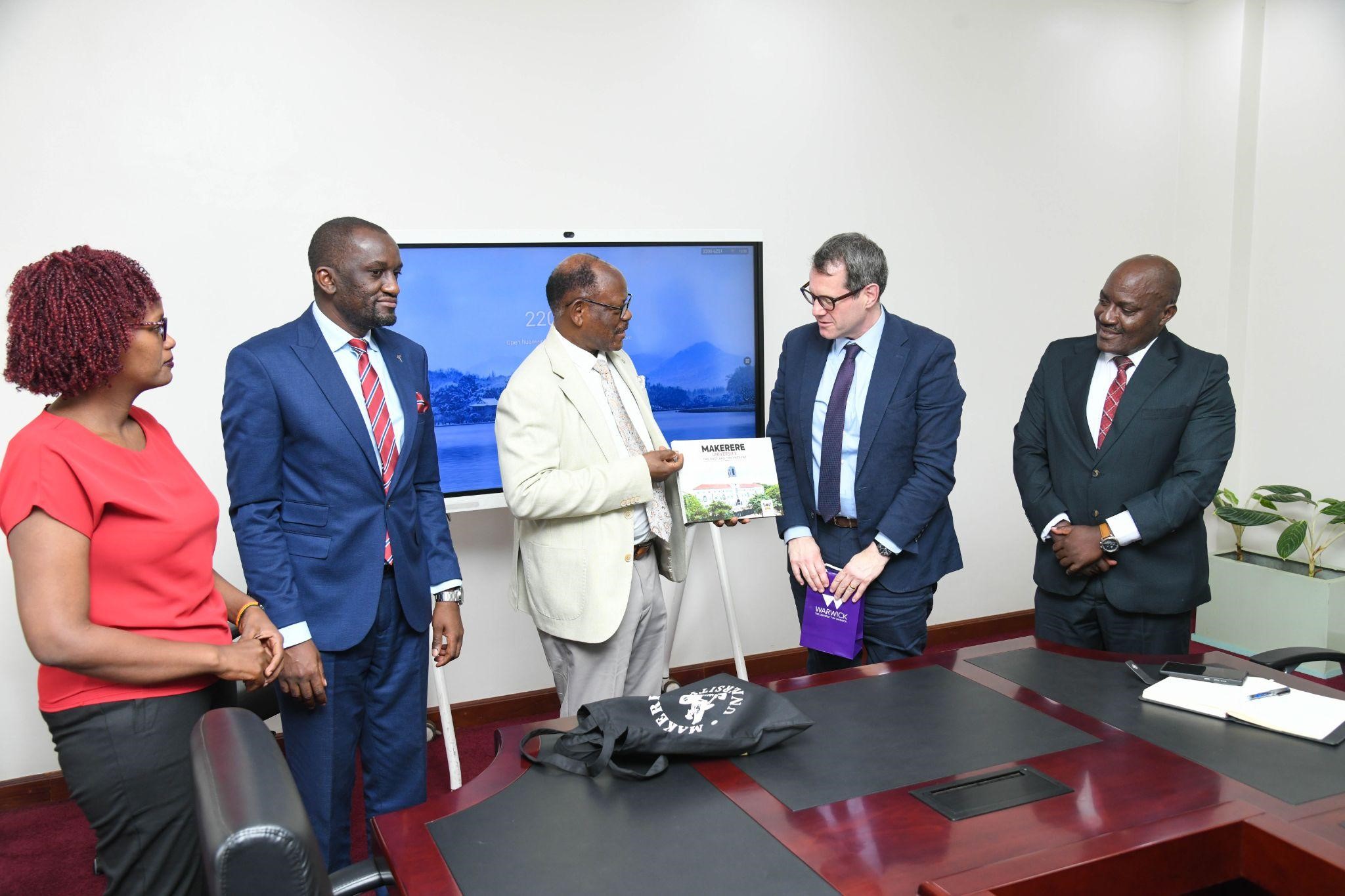
The Vice Chancellor emphasized that addressing youth unemployment remains a central priority, noting that innovation, entrepreneurship, and graduate training are essential to building stable societies.
He further stressed the importance of expanding graduate education. Africa currently produces a small proportion of global research output, and increasing PhD and Master’s training supported by international partnerships remains critical to accelerating knowledge production and development outcomes.
Internationalization and Shared Learning
Speaking on behalf of the University of Warwick, Professor Daniel Branch, Deputy Vice Chancellor, reflected on Warwick’s own institutional journey, noting that its growth has been driven by a strong focus on internationalization, innovation, and research. He expressed Warwick’s commitment to building productive partnerships with African universities, including Makerere, to advance joint research, training, and innovation.
Professor Branch also highlighted the importance of university-industry linkages, citing examples such as collaborations with major manufacturing firms that provide practical training opportunities and inform curriculum development.
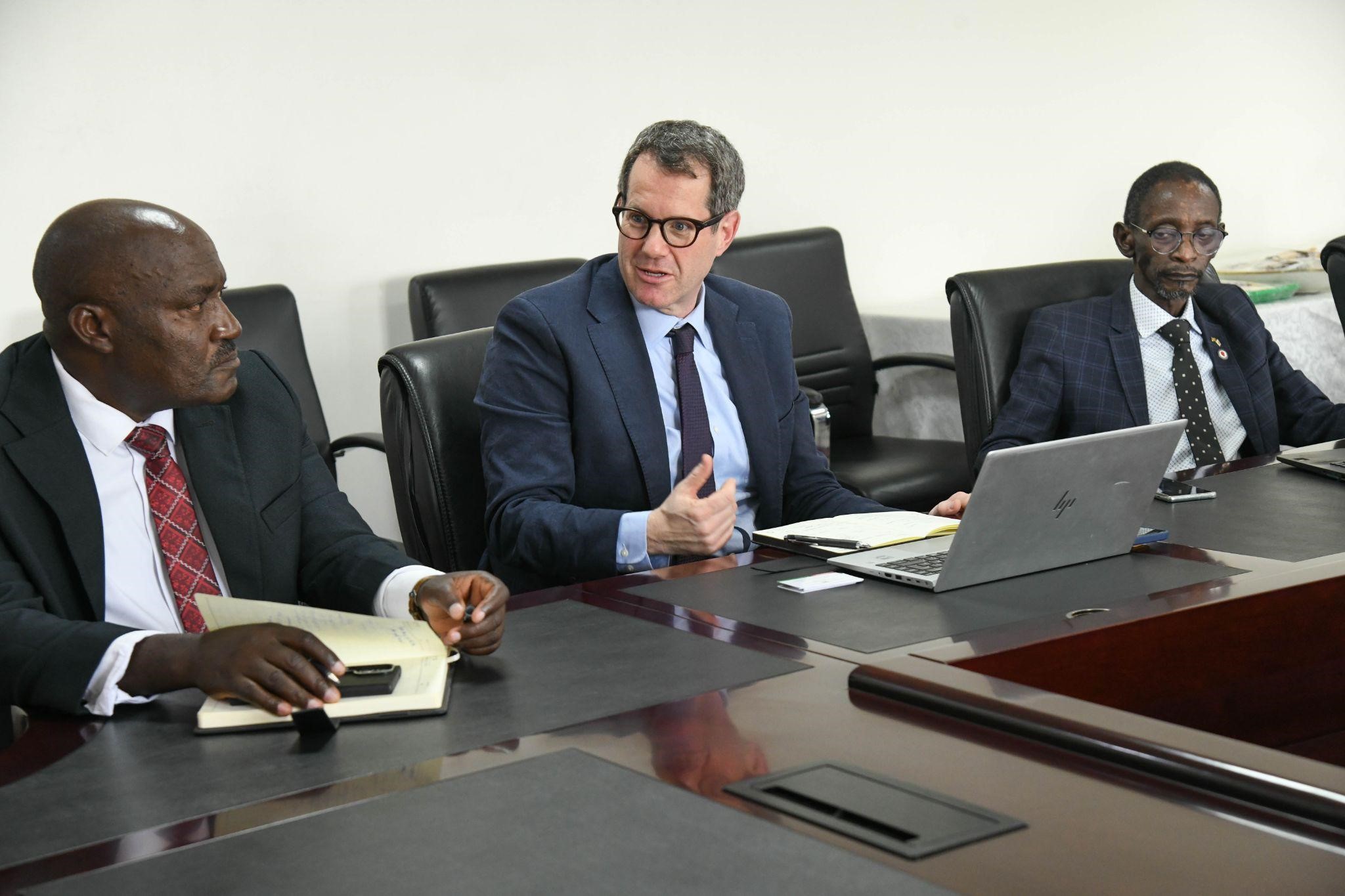
Showcasing Research and Innovation at CEDAT
A second session of the engagement was held at the College of Engineering, Design, Art and Technology (CEDAT), where academic leaders and researchers presented ongoing work across multiple disciplines.
Presentations included:
- Development of a solar water pump through reverse engineering (Dr. Edmund Tumusiime)
- Crane Cloud, a locally developed cloud-computing platform (team from the College of Computing and Information Sciences)
- Profiling gaseous emissions associated with burnt bricks (Dr. Nathan)
- Integration of centralized grid and decentralized renewable off-grid systems: a techno-economic analysis (Dr. Abubaker Waswa)
- Innovation and digitalization pathways for affordable housing in Sub-Saharan Africa (Prof. Stephen Mukiibi)
The session was attended by CEDAT leadership, including the Principal, Prof. Moses Musinguzi, as well as deans and heads of department from engineering, built environment, and industrial and fine arts. The day’s activities were concluded with a tour of Makerere University’s Innovation Hub.
The engagement reaffirmed Makerere University’s commitment to building strong, mutually beneficial partnerships that accelerate research, strengthen graduate training, and drive innovation. As global challenges such as climate change, public health threats, and youth unemployment intensify, collaboration among universities remains essential to developing scalable, evidence-based solutions.
Through partnerships such as the one Makerere University and the University of Warwick hope to activate through a Memorandum of Understanding in the near future, Makerere continues to position itself as a leading research-intensive university dedicated to transforming society through knowledge, innovation, and global cooperation.
Caroline Kainomugisha is the Communications Officer, Advancement Office, Makerere University.
General
Mastercard Foundation Scholars embrace and honour their rich cultural diversity
Published
4 days agoon
February 18, 2026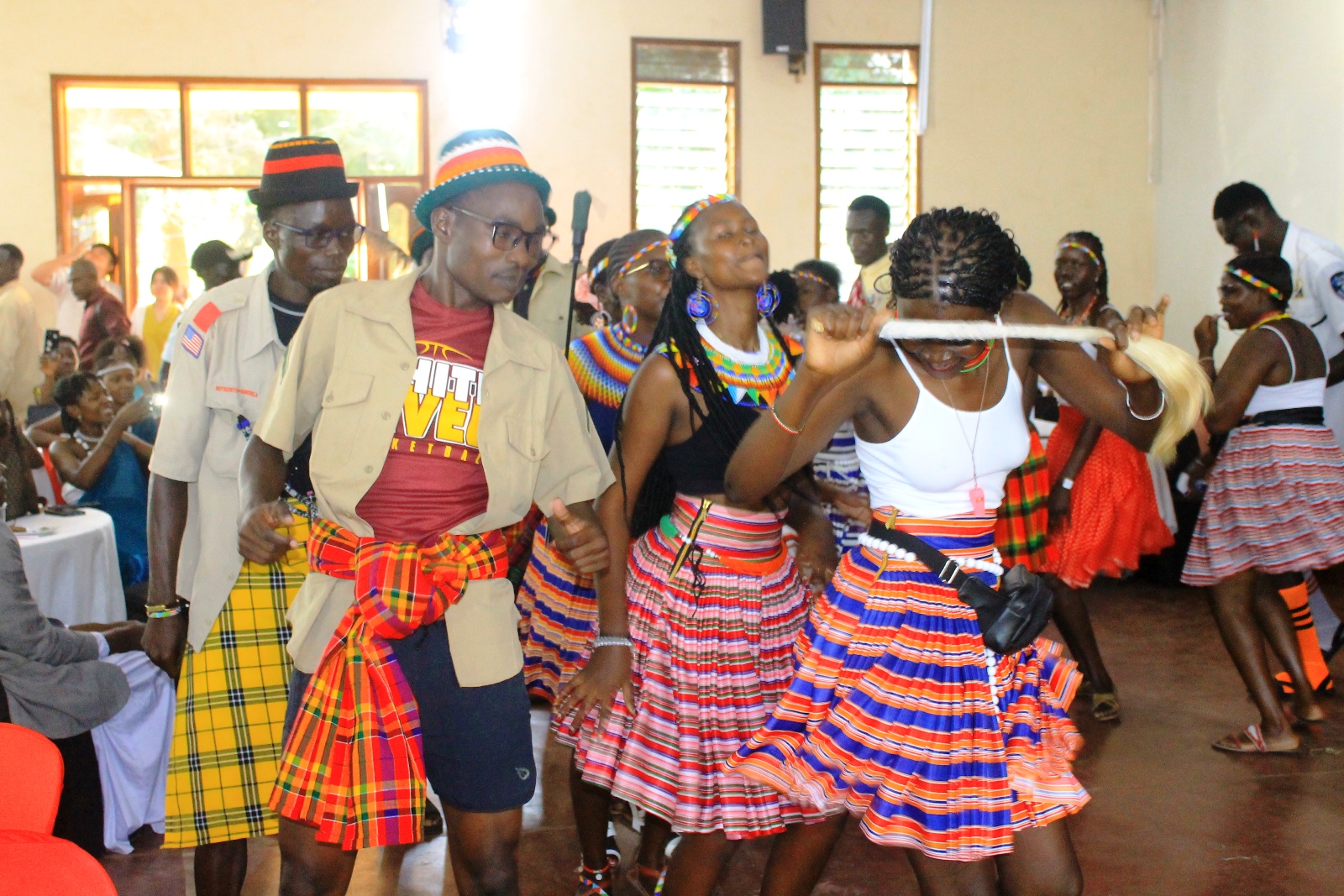
On the evening of Friday, 13th February 2026, the Scholars of Mastercard Foundation embraced the new semester with enthusiasm and celebration, showcasing their rich cultural diversity at the annual cultural dinner. This event not only fostered a sense of community but also highlighted the importance of cultural exchange and understanding among the scholars. The purpose of the cultural dinner is to foster unity in diversity within the Scholars community and to enable young people to appreciate and respect each other’s cultural differences.
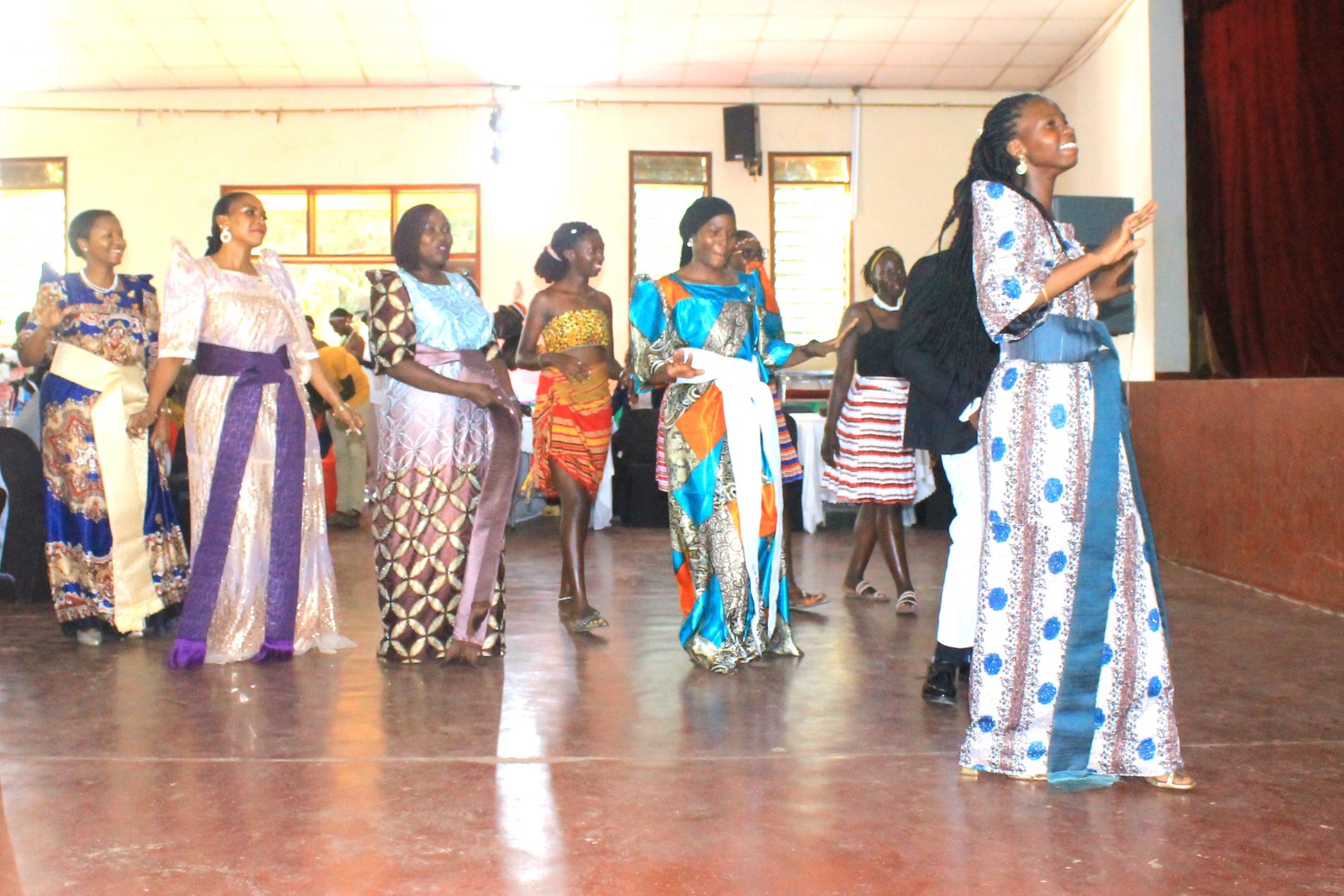
The Mastercard Foundation Scholars community at Makerere University is a vibrant tapestry of countries, cultures, and backgrounds. In recognition of this richness, the Program team has proposed organising an annual cultural dinner to kick off each new semester. This event aims to achieve several important objectives:
- Promote mutual understanding and cross-cultural appreciation among Scholars.
- Celebrate and highlight the unique cultural identities within our community.
- Encourage confidence and creativity through a dynamic talent showcase.
- Foster a sense of unity and excitement as we embark on the new academic semester together.
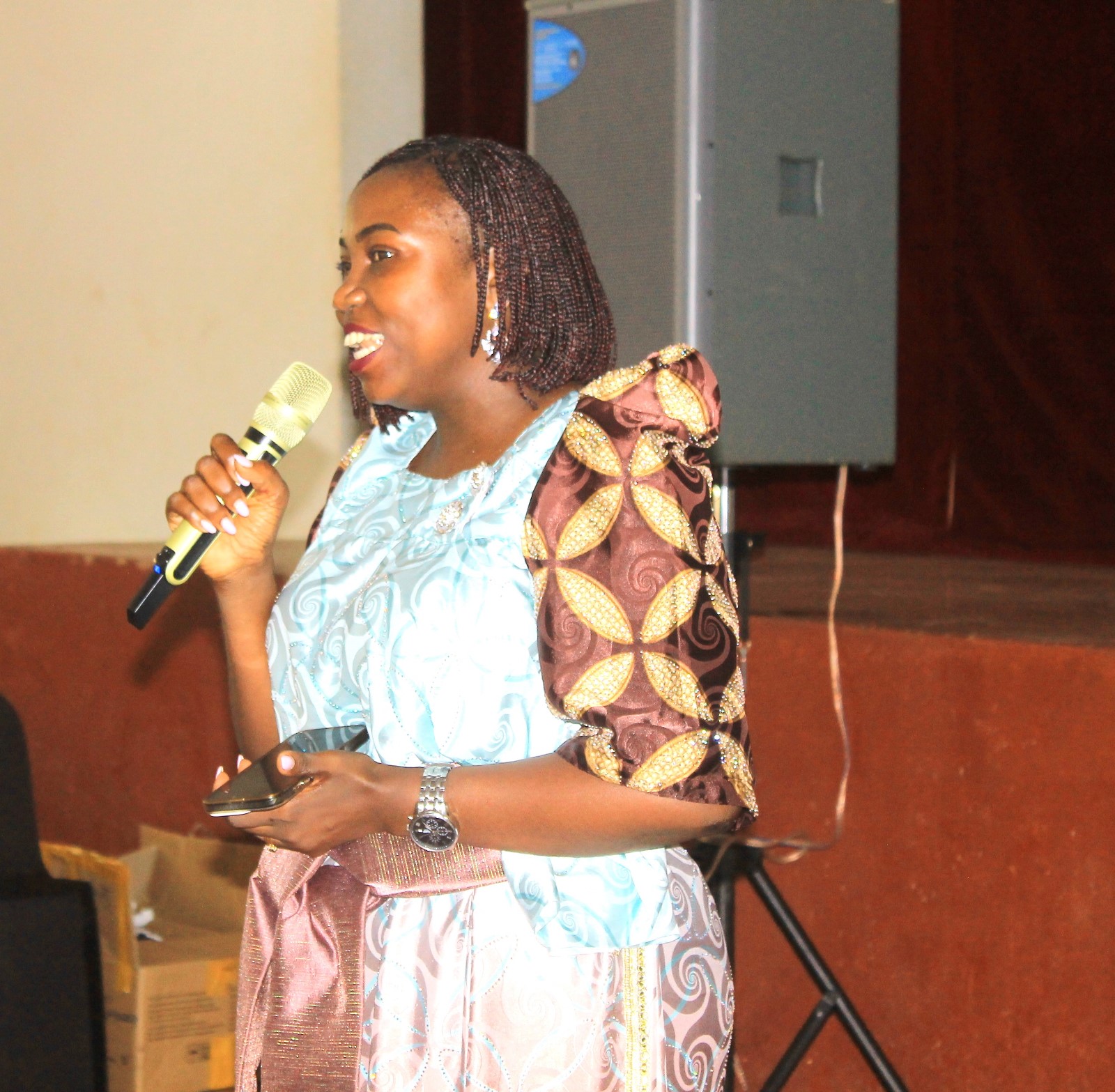
During the event, the Scholars proudly showcased their diverse cultures through a vibrant display of traditional attire, engaging dances, delectable dishes, and meaningful expressions in their native languages. The event showcased a rich tapestry of cultures, including the Baganda from Central Uganda; the Banyankore, Bakiga, Batooro, and Banyoro from Western Uganda; the Acholi from the North; the Karamojong from the Northeast; and the Basoga and Bagisu from the Eastern region, among many other indigenous tribes in Uganda. Additionally, attendees enjoyed cultural performances from South Sudan, Rwanda, and the Democratic Republic of Congo, celebrating the unique heritage of each community.
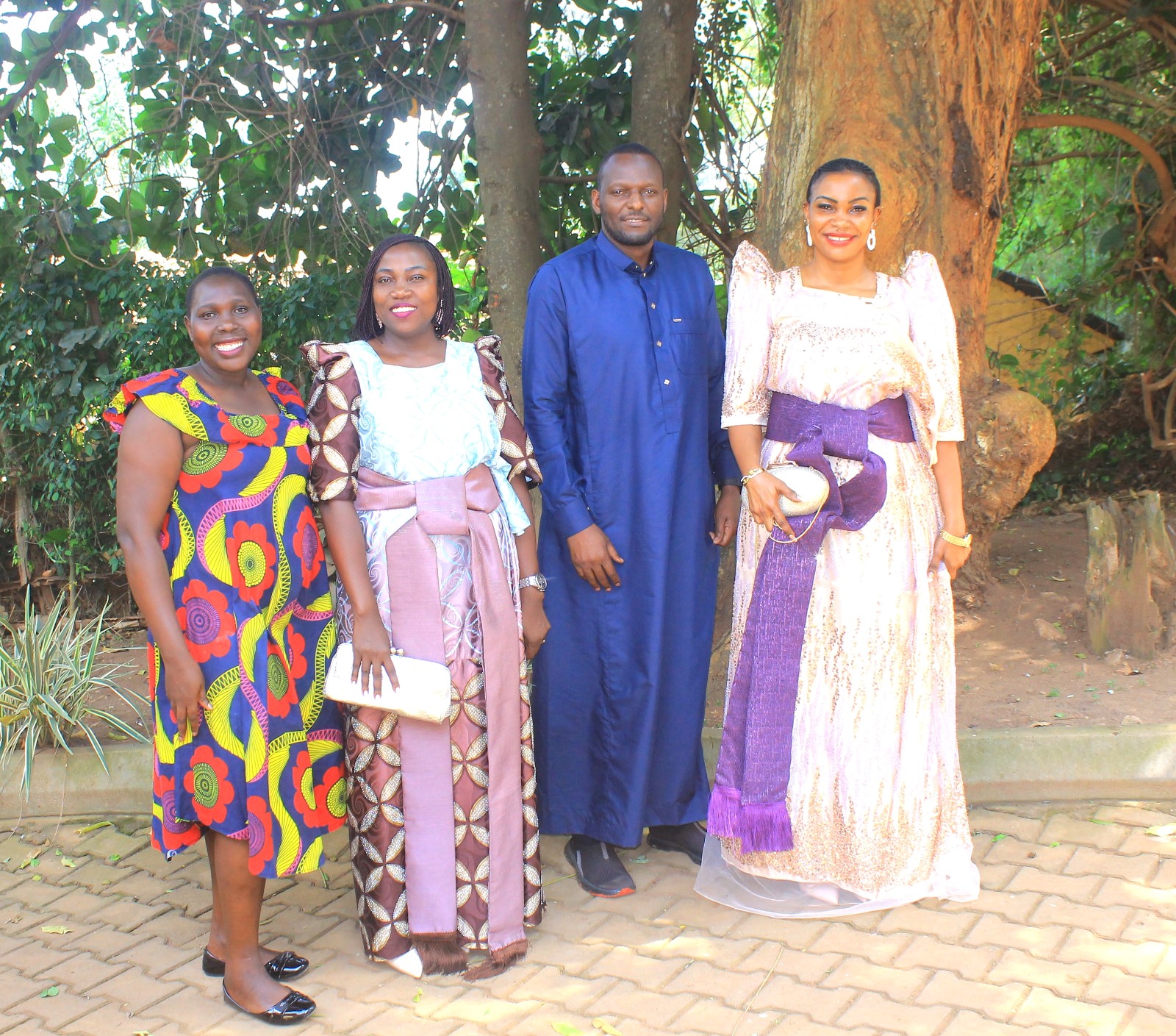
The event also featured a vibrant showcase of cultural attire, accompanied by traditional songs and dances. Attendees enjoyed cultural dress modelling, engaging performances, art displays, and interactive quizzes, culminating in exciting prizes awarded to outstanding performers. This diverse array of activities contributed to a rich celebration of creativity and cultural exchange.
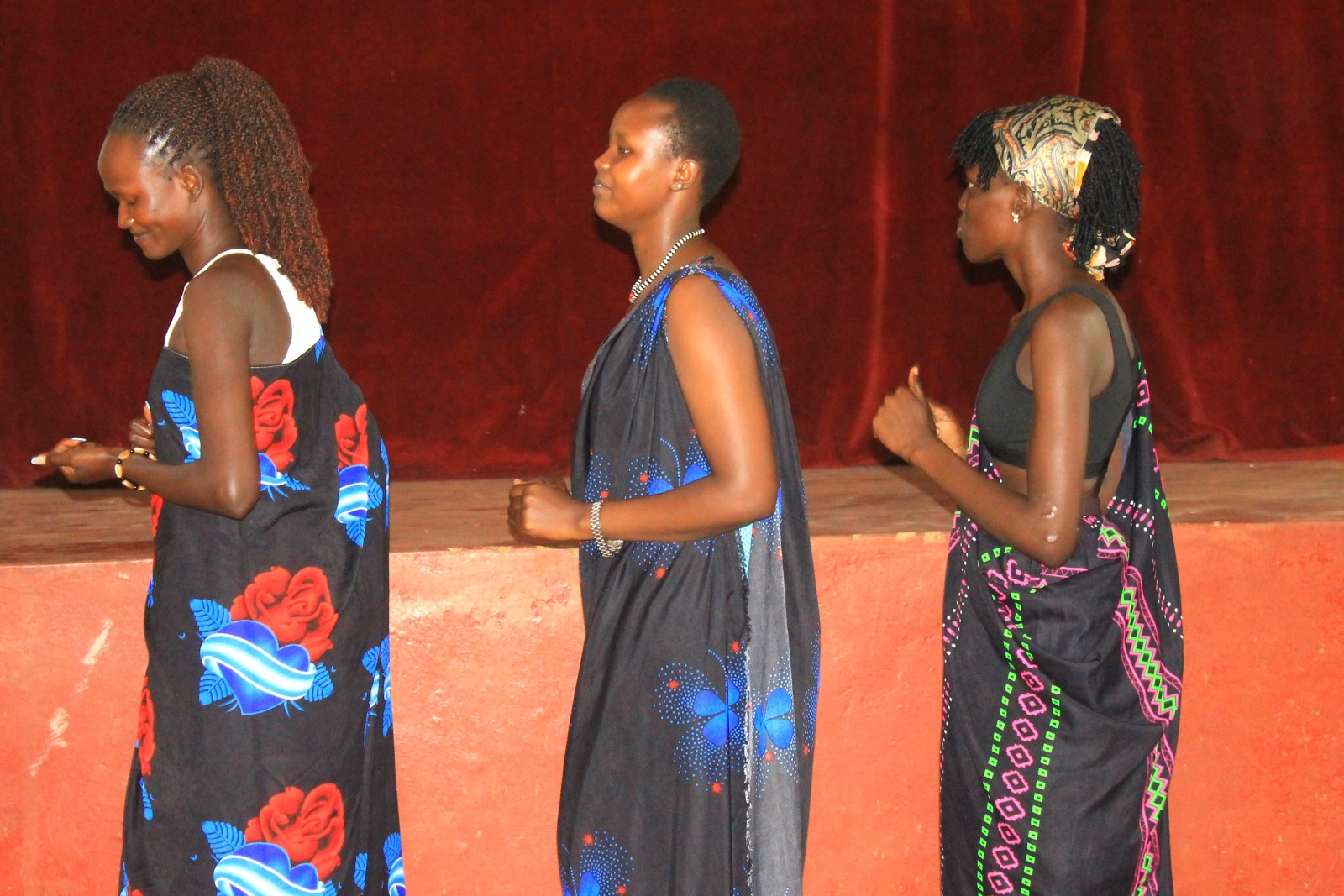
The Mastercard Foundation Scholars Program at Makerere University is committed to fostering holistic development, community building, and leadership among Scholars. At the start of each semester, the Program Team hosts a cultural dinner to reconnect the Scholars community, share key Program updates, and create an inclusive space to strengthen belonging and engagement. The cultural dinner is a critical platform for raising awareness of the need to appreciate and respect cultural diversity.
Bernard Buteera is the Principal Communications Officer for the Mastercard Foundation Scholars Program at Makerere University.
More Photos from the Dinner
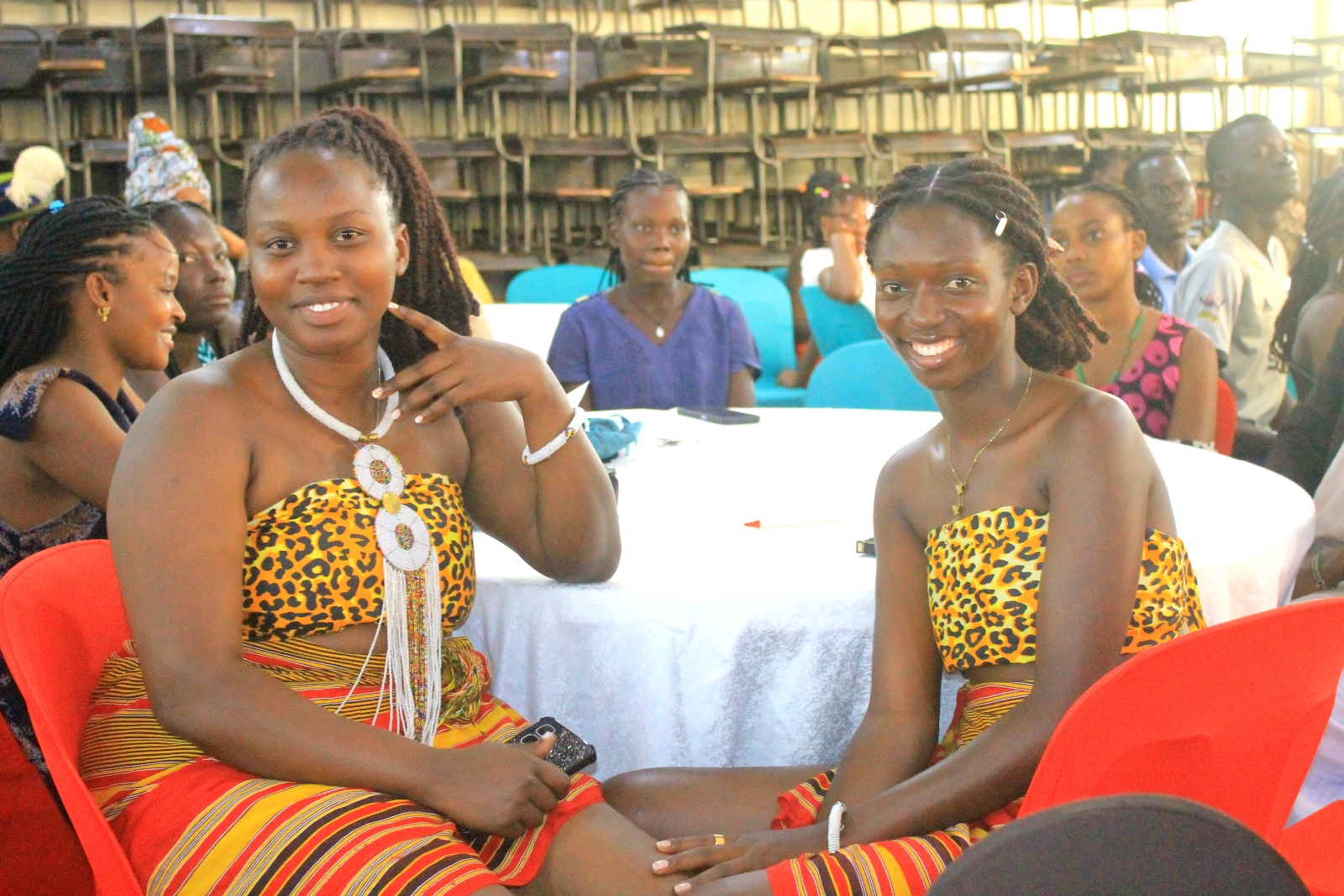
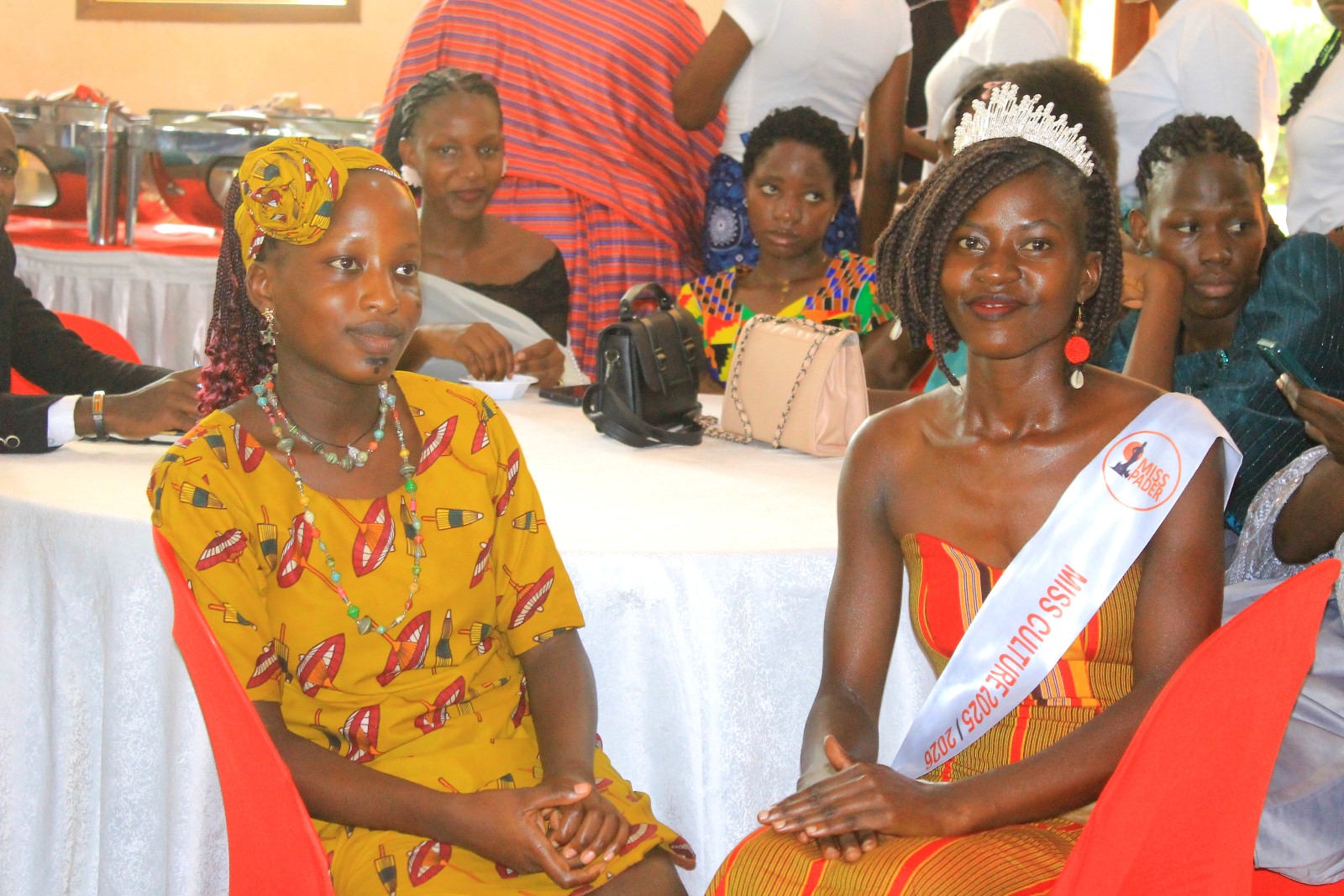
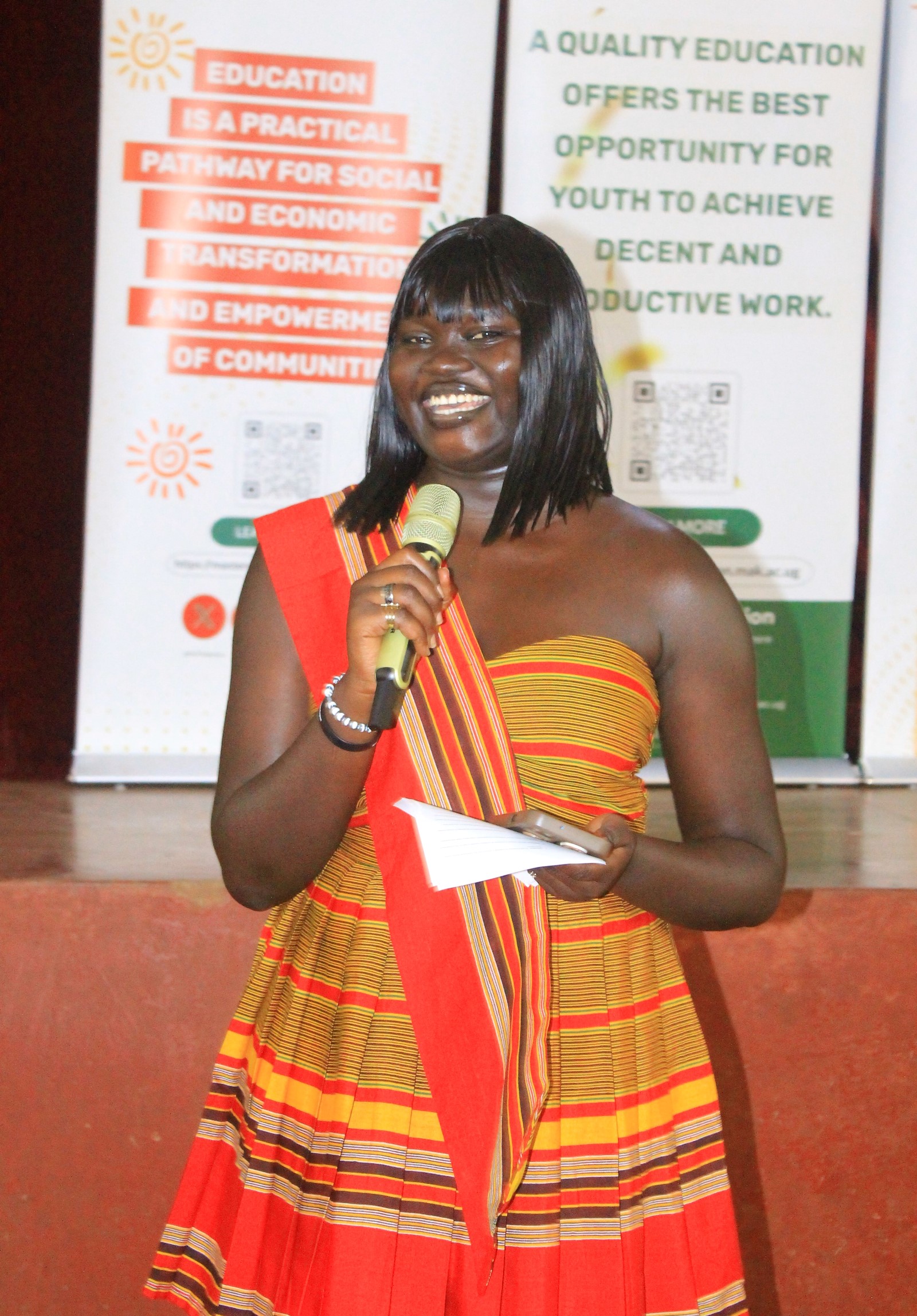
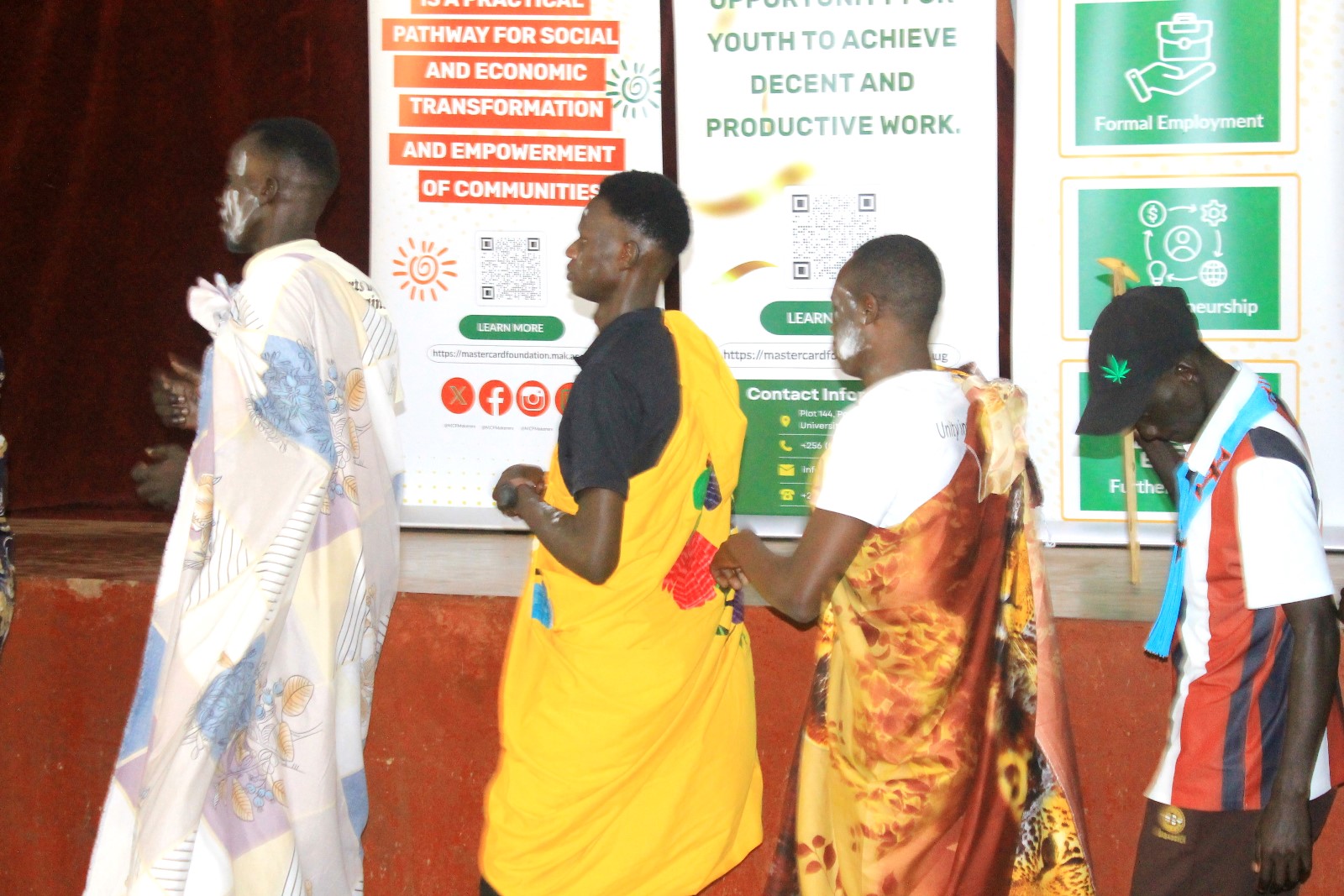
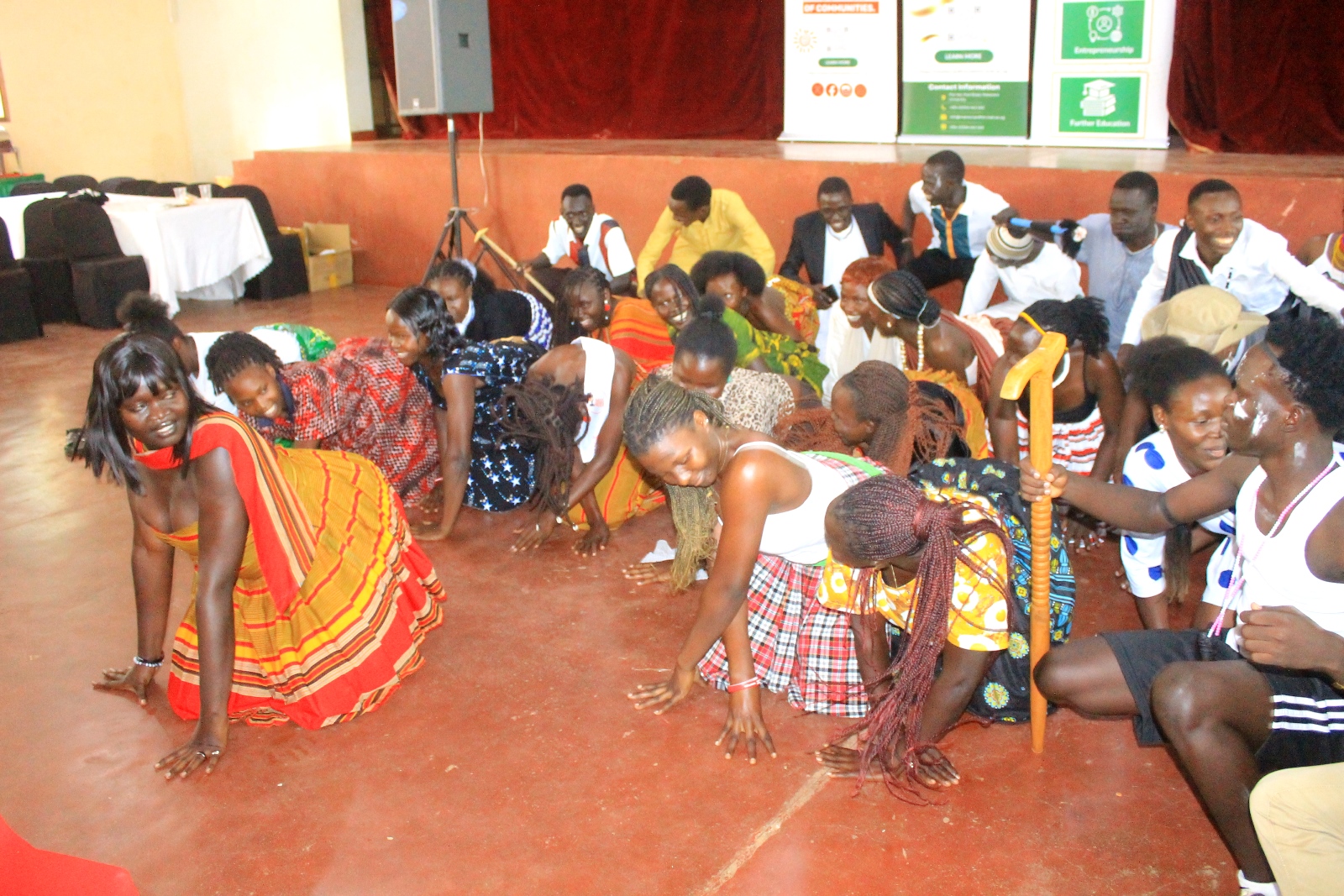
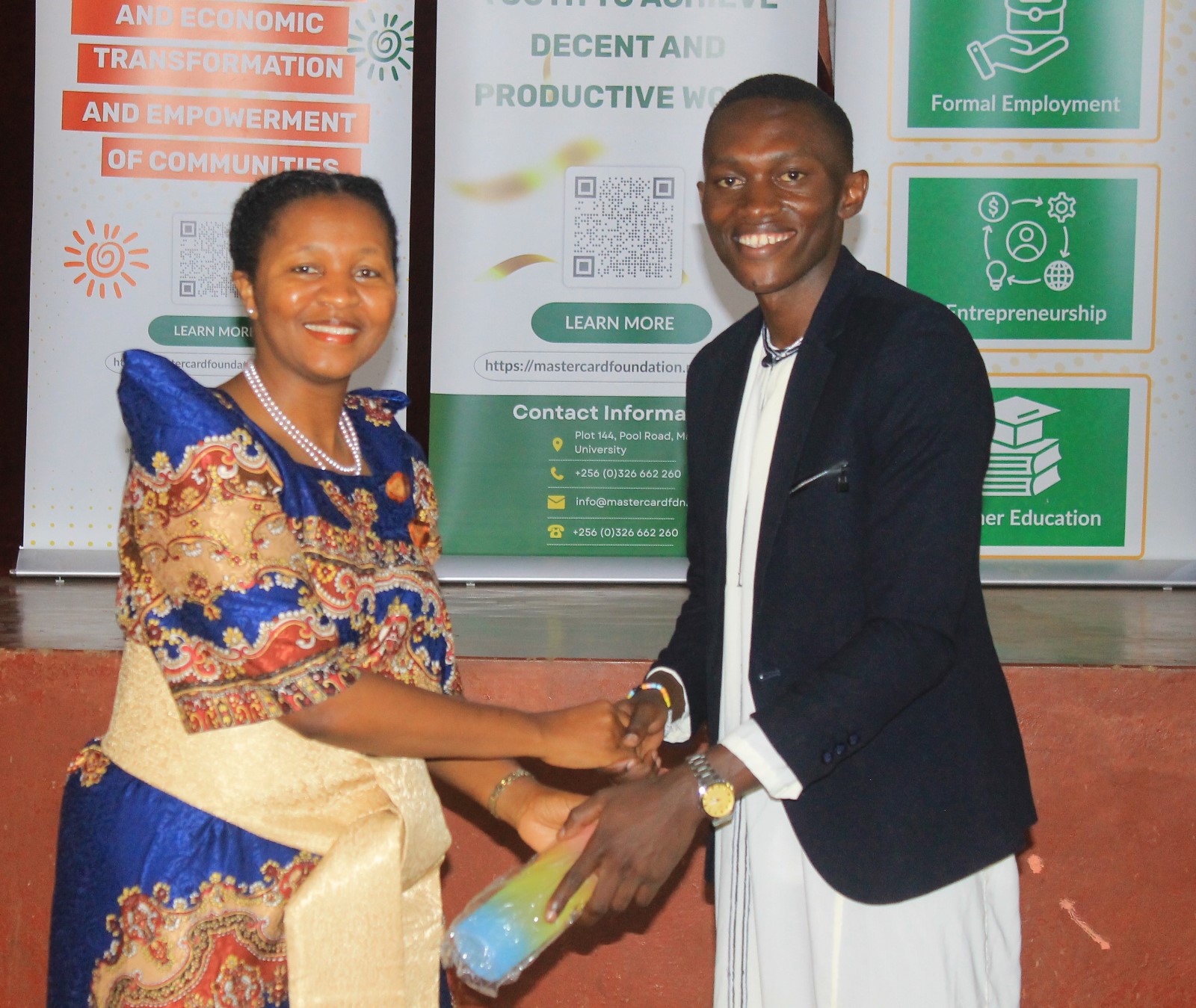
Trending
-

 General2 weeks ago
General2 weeks agoAptitude Exam (Paper 1) Results for the Mature Age Entry Scheme 2026/2027
-

 Health4 days ago
Health4 days agoUganda has until 2030 to end Open Defecation as Ntaro’s PhD Examines Kabale’s Progress
-

 Health2 weeks ago
Health2 weeks agoHow Jimmy Osuret Turned Childhood Trauma into Evidence for Safer School Crossings
-

 General2 weeks ago
General2 weeks agoFor Youth by Youth – Call for Second Cohort Applications
-

 General4 days ago
General4 days agoMastercard Foundation Scholars embrace and honour their rich cultural diversity
